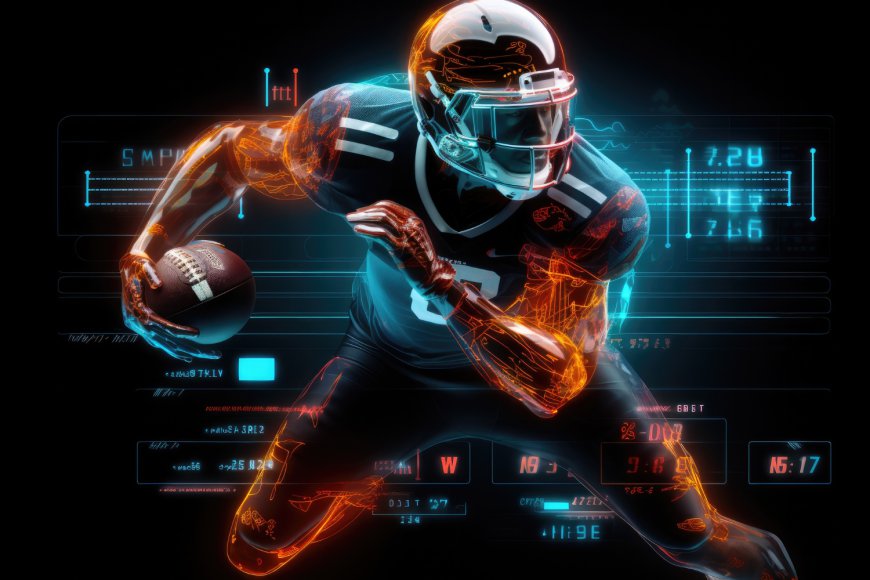Generative AI in Sports: The Key to Unlocking Player Potential
Explore how generative AI is transforming sports by unlocking player potential. From personalized training and injury prevention to game strategy and fan engagement, discover how AI is revolutionizing athletic performance.

In recent years, the sports industry has seen an incredible transformation thanks to advancements in technology. One of the most revolutionary developments is the use of generative AI in sports. This cutting-edge technology is reshaping how players train, perform, and even recover, opening up new opportunities for maximizing player potential. From personalized training programs to injury prevention, generative AI is playing a pivotal role in the future of sports performance.
How Generative AI Enhances Player Training
One of the primary ways generative AI in sports unlocks player potential is through personalized training programs. Traditional training methods often use a "one-size-fits-all" approach, but with generative AI, trainers can create highly customized regimens based on an athlete's unique needs.
Generative AI analyzes vast amounts of data from a player’s performance, including physical metrics like speed, strength, and endurance, as well as psychological factors such as stress levels and focus. By processing this data, AI can identify areas where improvement is needed, allowing for more effective and efficient training. This not only helps athletes improve their skills but also allows for faster recovery by focusing on muscle groups or movements that need attention.
Injury Prevention and Recovery with AI
Injuries are an unfortunate part of every sport, but generative AI is making strides in predicting and preventing them. By analyzing a player's movement patterns, AI can detect signs of overuse or improper form that could lead to injuries. For example, in sports like basketball or soccer, where players are constantly changing direction or jumping, AI can flag potential risks in joint strain or muscle imbalance before they become serious problems.
Once an injury occurs, AI in sports medicine comes into play. By evaluating recovery data and simulating different recovery scenarios, generative AI can suggest personalized rehabilitation plans that reduce downtime and optimize recovery. This data-driven approach ensures athletes get back to peak performance faster while minimizing the risk of re-injury.
Game Strategy and Performance Analytics
Another area where generative AI is revolutionizing sports is in game strategy and performance analytics. Teams and coaches are now able to use AI to analyze vast amounts of game footage and player data, uncovering patterns that would be impossible to spot with the human eye. For instance, AI can suggest strategies based on opposing teams' weaknesses, track players' movements during a game, and even predict the best course of action in real-time.
This has transformed coaching by providing data-backed insights that support decision-making. Coaches can now focus on fine-tuning their tactics, knowing they have solid data to guide their decisions. This leads to a more strategic approach to the game and often translates to better performance on the field.
AI in Fan Engagement and Player Branding
Generative AI is also improving how athletes engage with their fans and build their personal brand. By leveraging AI-powered content creation tools, athletes can share personalized and unique content with fans, enhancing their connection with their audience. From custom highlights to behind-the-scenes training footage, generative AI helps players create content that resonates more effectively with their followers.
For example, AI can generate personalized video highlights based on an athlete’s performance data, creating a more engaging fan experience. This level of engagement not only benefits players in terms of brand-building but also allows fans to have a deeper, more interactive relationship with their favorite athletes.
Future of Generative AI in Sports
The future of generative AI in sports holds endless possibilities. As technology continues to advance, AI will become even more integrated into every aspect of sports—from enhancing player performance to transforming fan experiences. With AI-powered wearable devices, athletes can track their performance in real-time, getting immediate feedback that helps them fine-tune their training. Additionally, AI will continue to evolve in creating more precise predictions about player potential, helping teams scout and recruit the best talent.
Conclusion:
Generative AI is proving to be the key to unlocking athlete potential by enhancing training, preventing injuries, optimizing game strategies, and building stronger fan connections. As AI technology continues to evolve, it will further revolutionize the sports industry, helping athletes reach new heights of performance while providing fans with more immersive and personalized experiences. The future of sports is undoubtedly AI-powered, and those who embrace these innovations will gain a significant competitive advantage.
By integrating AI in sports today, teams, athletes, and organizations can unlock the full potential of every player, ensuring better results both on and off the field. Partnering with a generative AI development company can help accelerate this transformation, providing the tools and expertise necessary to stay ahead in this AI-driven future.
